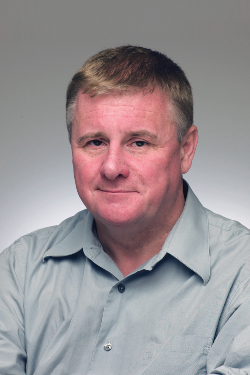Jeremy K Nicholson


Professor Jeremy K Nicholson
Doctor of Science, honoris causa (2019)
Professor Jeremy Nicholson is the Pro Vice Chancellor of Health Sciences and Executive Director of the Australian National Phenome Centre at Murdoch University, Australia. Known for his influence as a thought leader in systems medicine and in the development of the understanding of the human microbiome, Professor Nicholson has been a pioneer in many technical innovations in biomedicine and in particular the elevation of metabolic phenotyping as an important area of academic inquiry. Previously at Imperial College London, Professor Nicholson was Head of the Department of Surgery and Cancer in the Faculty of Medicine, and the Director of The UK National Phenome Center.
Professor Nicholson was sent to private schools from an early age by his father, a famous crime journalist, so as to impart upon him the importance of strict academic discipline. His father also taught him how to write well and be entertaining and how to summarise complex stories efficiently in simple terms. He is grateful to have been raised in a family of high achievers who devote their work to help others. One of three children, he grew up in the North of England and then moved to London. The abundant cultural resources of the city shaped his global awareness of and resilience in diverse environments.
Professor Nicholson earned his PhD in Biochemistry from St Thomas’s Hospital Medical School, Kings College, University of London in 1980. He is a pioneering researcher in metabolic phenotyping – the large-scale study of small molecules, known as metabolites, produced by the body – and phenomics – the study of the interaction of genes and the environment. An author of more than 800 publications, his work has been cited more than 65,000 times and has an h-index (a measure of the productivity and citation impact of a scholar’s publications) of 145. His illustrious career is seen through the many honours and awards he has received over the years. He received the Gold and Silver Medals in Analytical Chemistry and Analytical Science from the Royal Society of Chemistry (RSC) in the United Kingdom in 1997 and 1992 respectively; the RSC Interdisciplinary Prize in 2007, the RSC Theophilus Redwood Lectureship in 2008 and the RSC Chemical Biology prize in 2010. Elected as a Fellow of the UK Academy of Medical Sciences in 2010. He is also Honorary Fellow of the Royal College of Physicians (2018) and Honorary Lifetime Fellow of the International Metabolomics Society. He holds honorary professorships at eight universities round the world. In 2014, he was elected an Albert Einstein Honorary Professor of the Chinese Academy of Sciences.
Referring to himself as “a thoroughbred scientist,” by which he means that he is deeply interested in all aspects of science and medicine including those outside his immediate research field, Professor Nicholson offers the same advice to young scientists. “Be interested in everything and everyone and keep an open scientific mind,” he said. “Think about how your skills can be developed or applied to important scientific questions or medical challenges and do something about it,” he insists. One of his major research achievements is on the use of mass spectrometry and nuclear magnetic resonance spectroscopy to offer scientists an overview of hundreds of thousands of metabolites in a single analytical run covering a large number of physiological and metabolic processes. What this does is to enable them to understand how a patient might respond to different treatments. This could be the future of healthcare: personalised medicine which would save lives and money by delivering the correct treatment for the patient based on the individual’s genes and environment.
He recalls the time when he was a postdoc in his 20s, when he was told several times by some very famous scientists (including a Nobel Laureate) that the experiments he had wanted to run were simply not possible. Determined and confident, he paid no heed to their advice and went on to make some so-called impossible things work. Later on in his career, some of the senior scientists had the grace to recognise his achievements. “If you think something is the right thing to do then do it and do not be put off by people who have less imagination than you even if it is from someone far senior to you,” Professor Nicholson advises. He has a lifelong career committed to finding ways to reach out, understand, and communicate knowledge that will be conducive to developing cross-disciplinary projects and real world problem solving with scientists or researchers who are often outside his own field.
Professor Nicholson has been a good friend to Hong Kong Baptist University (HKBU). As founding Director of the Medical Research Council – National Institute for Health Research National Phenome Centre (NPC), the world’s first National Phenome Centre, he joined hands with the School of Chinese Medicine at HKBU to help establish the Hong Kong Traditional Chinese Medicine Phenome Research Centre in April 2017. The Centre is the only phenome centre working on Chinese medicine in the global phenome research network built by the NPC under Professor Nicholson’s leadership. And on the occasion of HKBU’s 60th anniversary celebration in 2016, Professor Nicholson delivered a distinguished lecture on bridging medicine in the East and the West to more than 120 faculty members, researchers, and students from our School of Chinese Medicine and the Faculty of Science.
In recognition of his distinguished research and scholarship in systems medicine, his outstanding leadership among world-class higher education institutions, and his longstanding commitment to promoting interdisciplinary science to improve medical care, HKBU is pleased to award Professor Jeremy K. Nicholson the Doctor of Science, honoris causa.